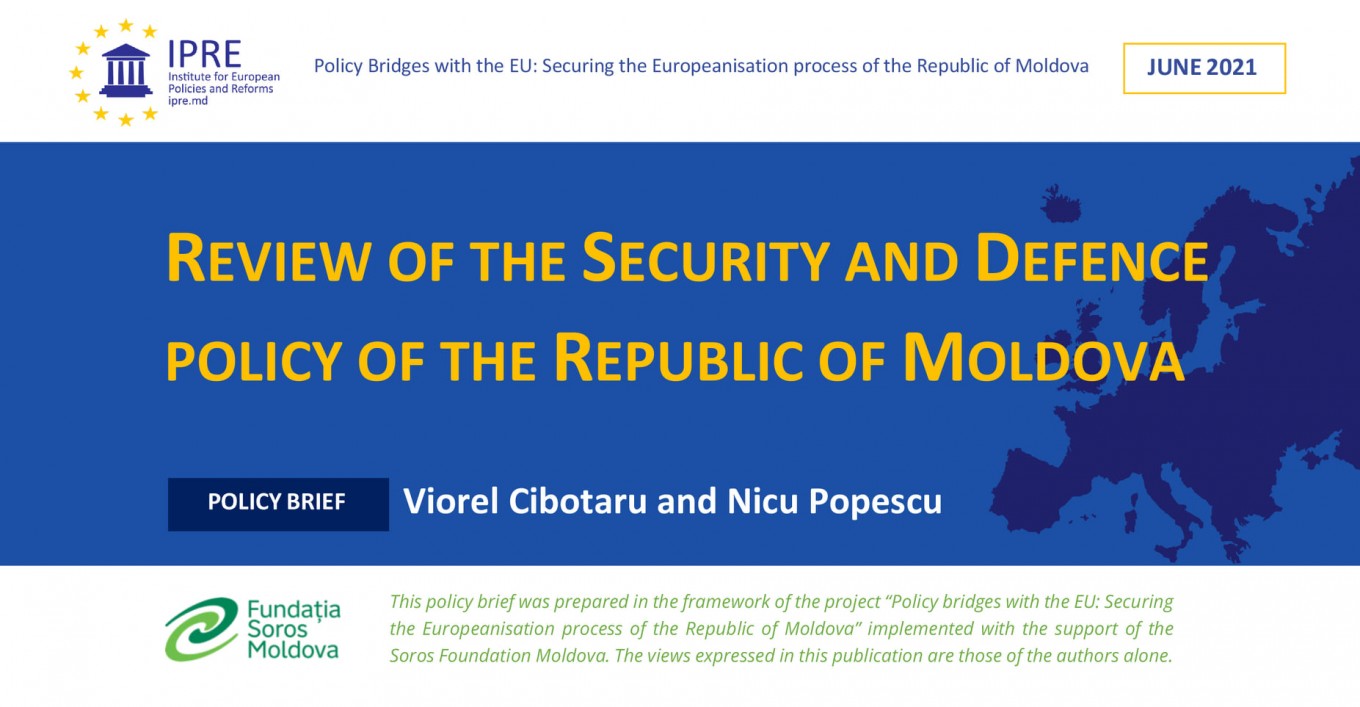REVIEW OF THE SECURITY AND DEFENCE POLICY OF THE REPUBLIC OF MOLDOVA

Authors: Dr. Viorel Cibotaru is the Executive Director of the European Institute of Political Studies in Moldova, co-founder of the NATO Information and Documentation Center in Moldova. Nicu Popescu is the director of the Wider Europe programme at the European Council on Foreign Relations (ECFR, Paris).
EXECUTIVE SUMMARY
The recent Moldova’s political developments, namely the presidential elections, the early parliamentary elections, are signalling an increased popular support for the fight against corruption, reform of the political class and the way out of the multiple crises i.e. health, economic, social, environmental and demographic. This desire for change also dictates a course of deep and systemic reform of state institutions, including the national security and defence sector.
This policy brief is assessing the outstanding issues and priorities to help advance a national strategic security sector review, including the reform of the National Army and the Security and Information Service, which should lead to development in the short to long run a set of laws and policy measures for the implementation of an integrated security and defence policy, harmonised with key foreign policy guidelines of the Republic of Moldova.
To achieve this goal, it is necessary to launch, under the auspices of the Presidency of the Republic of Moldova, a comprehensive process of reconfiguration towards setting-up an integrated national security and defence system. But it is essential that this process is guided by the competent national authorities in charge for the national security and defence sectors, such as the Ministry of Defence and the Security and Information Service, which also need in the first place to be urgently reorganised and empowered themselves. A special role in this process is assigned to the military and traditional diplomacy, advanced strategic knowledge tools with a strong intelligence component, improved public awareness and increased level of security culture across the entire society.
In this respect, the security sector reform process needs to be inclusive and encompassing pro-reform political actors, competent national authorities, civil society, national experts, but also international partners supporting the key national actors with methodologies, expertise and necessary technical assistance. A step in this direction would be the creation by the President of the Republic of Moldova of a National Platform on security and defence issues assigned with the role to reflect, consult, and advance policy proposals for a comprehensive security sector reform, which will also include thematic consultative committees and interinstitutional working groups on issues such as external cooperation in the field of international security.
This policy brief was prepared in the framework of the project “Policy bridges with the EU: Securing the Europeanisation process of the Republic of Moldova” implemented with the support of the Soros Foundation Moldova. The views expressed in this publication are those of the authors alone.
Fullscreen Mode
